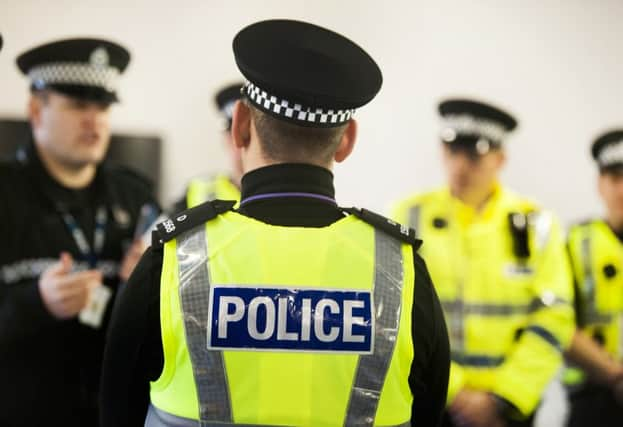Chris Marshall: SNP must launch inquiry into police spying row


Mr Halpin, now a respected computer scientist, says he was badly beaten by Danish police after travelling to a 2009 climate summit in Copenhagen and placed on “domestic extremist watch list” in the UK.
Among those who are said to have travelled with him from Edinburgh to the Danish capital was an environmental activist later unmasked as Mark Kennedy, a former Metropolitan Police officer who became attached to the controversial and now defunct National Public Order Intelligence Unit (NPOIU).
Advertisement
Hide AdAdvertisement
Hide AdKennedy was among a group of notorious undercover operatives who spied on activists and deceived women into having relationships.
Their activities led Scotland Yard to issue a public apology last year and pay compensation to those involved.
In addition to well-documented activities in England, campaigners believe Kennedy and others infiltrated environmental groups in the run-up to the 2005 G8 summit at Gleneagles.
An examination of the activities of these officers is expected to form part of the Undercover Policing Inquiry led by Sir Christopher Pitchford. With a remit stretching back to 1968, the Pitchford inquiry will look at secretive policing operations during such era-defining events as the 1984-5 miners’ strike and the 1990 poll tax riots.
Crucially, however, the inquiry’s remit extends only to England and Wales and not to Scotland.
Despite calls from the Scottish Government for the inquiry to be extended north of the Border, UK government policing minister Brandon Lewis last week wrote to Labour MSP Neil Findlay to say such a move was “not possible”.
A spokesman for the Scottish Government said it was “extremely disappointed” by the decision not to extend Pitchford.
But the government must take its share of the blame for being slow to act and listen to concerns about the actions of the undercover operatives north of the Border.
Advertisement
Hide AdAdvertisement
Hide AdAsked during a debate in Holyrood last year whether he believed Police Scotland or any of its predecessors had “monitored the activities” of activists, trade unionists or environmental campaigners, justice secretary Michael Matheson said he had “no idea”.
Indeed it appears the Scottish Government considered undercover policing a non-issue in Scotland until more and more people came forward to complain about being spied on.
Many of them were activists secretly monitored by police officers during the G8 summit, who claim their lives were blighted for years afterwards due to intelligence passed on to the authorities about them.
While it is possible that state-sponsored spying went on in Scotland without the knowledge of Scottish police forces, it seems unlikely.
If the UK government is to remain implacable about Scotland’s role in Pitchford, then the Scottish Government has no other option – it must set up its own inquiry.
While the activities of Kennedy et al may have taken place more than a decade ago in Scotland, they are continuing to be felt to this day by those who were targeted.
Nor is this a niche issue which affected a handful of campaigners and activists.
The covert surveillance of those exercising their democratic right to protest and campaign should trouble us all.